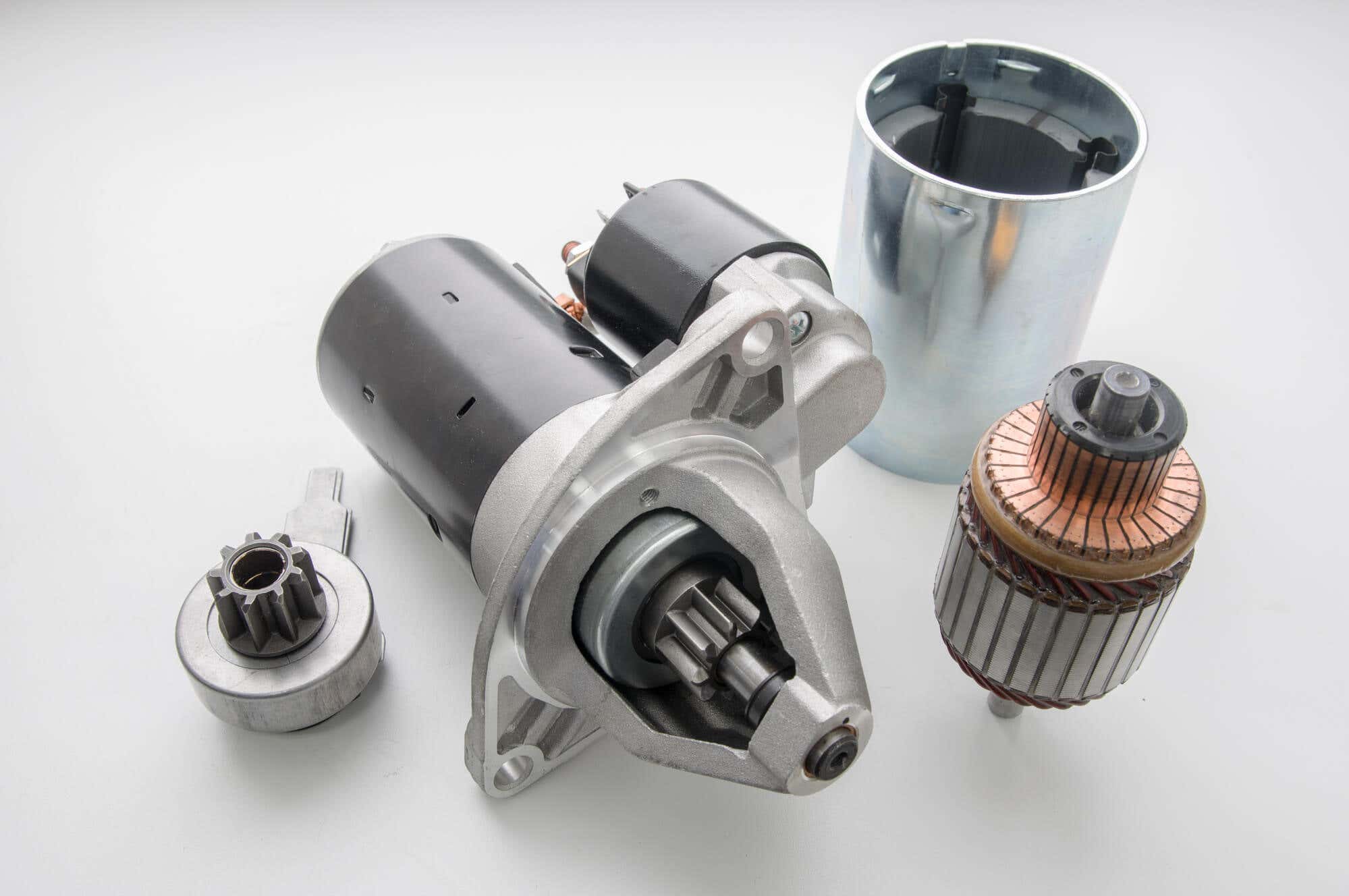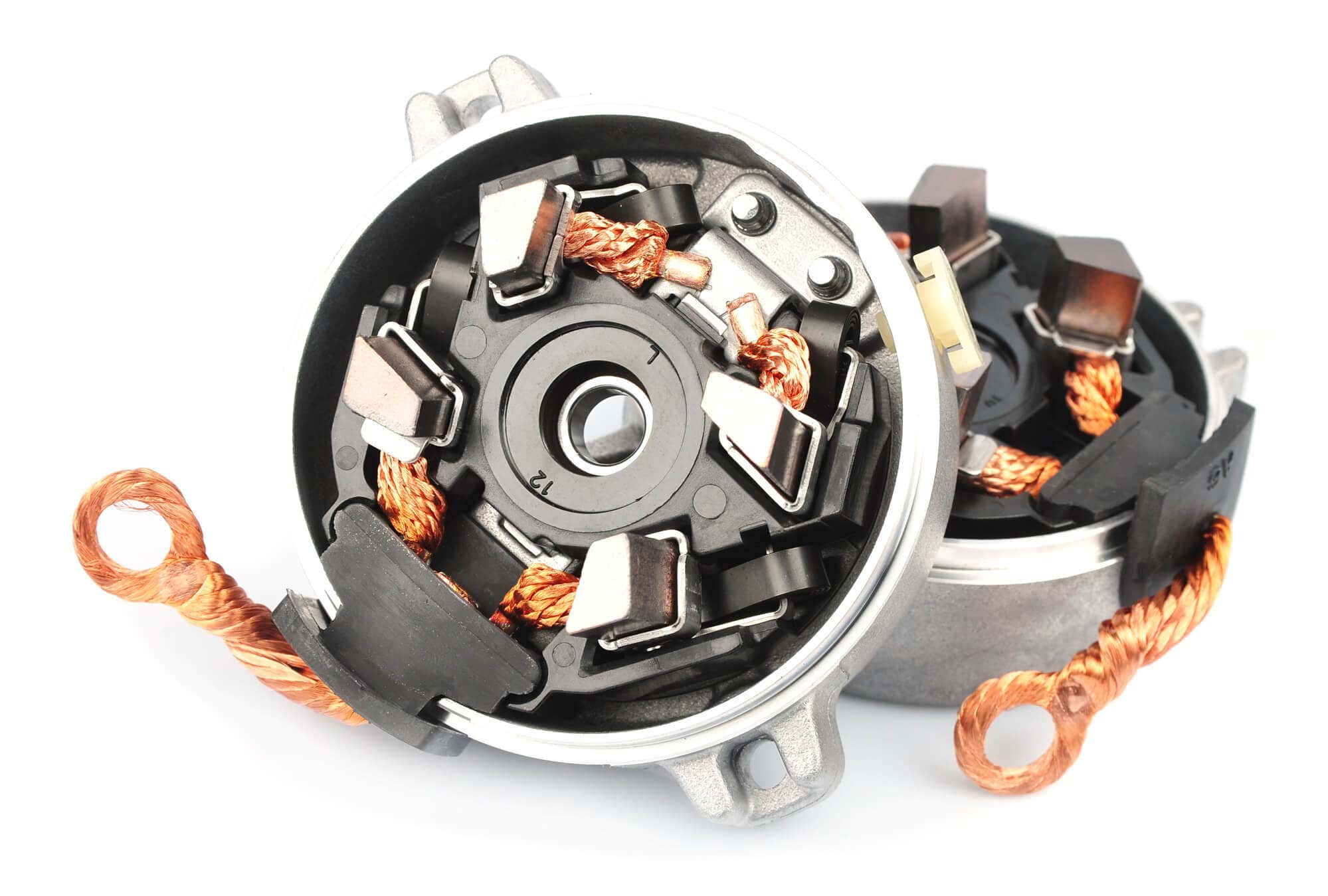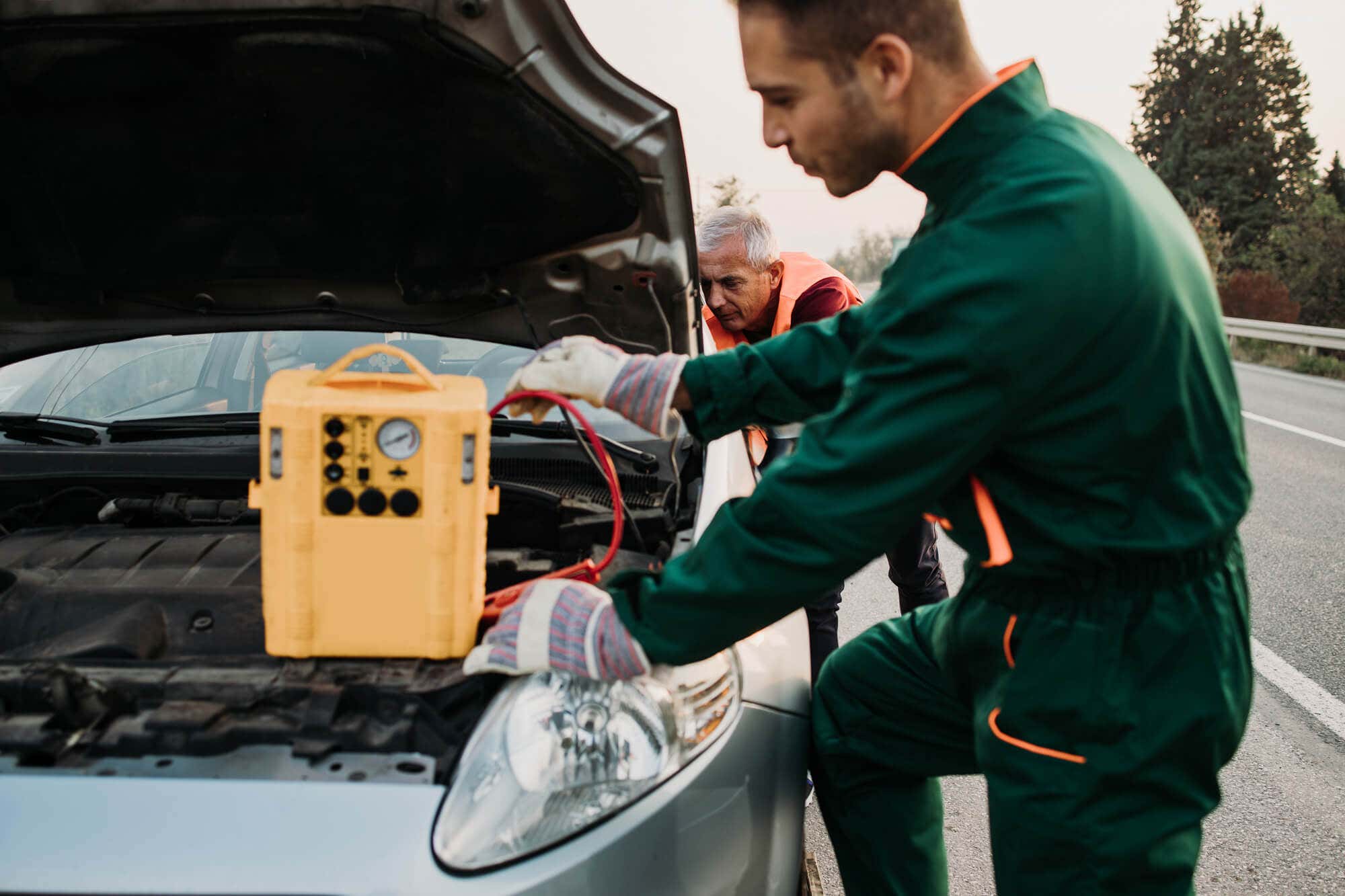There are about a thousand and one sounds a car can make when it’s deteriorating toward failure. You’ve got clunks from broken suspension parts, the hiss of a spent radiator, and brop, brop, brop of a flat tire. There are so many that it’s sometimes difficult to discern what’s what. That’s especially true of a bad starter.
A car’s starter is a small electrical device that consists of the motor and a solenoid. When you crank the ignition, the solenoid uses the car’s battery energy and sends it to the electric motor. The motor then pushes a starter gear into the vehicle’s flywheel, and poof! ignition. But when the starter goes bad, you’re stuck.
Diagnosing a bad starter is fairly straightforward, and the sound, when told what to listen for, is easily detected. So, stay with The Drive’s crack informational team as we walk you through the sights and sounds of a bad starter.
*taps the mic*
Hello, online people!

Starter generator and air conditioning compressor
What Sound Does a Bad Starter Make?
A bad starter’s tell-tale noise is loud clicking. It can either have a fast tempo, click-click-click-click-click-click-click-click or a slower lilt of click, click, click, click. No other part makes these noises when they fail, so if you hear either, you’re likely going to be on the hook for a brand-new starter.
How Do You Know If It’s the Battery or the Starter?
The battery and starter are inextricably linked. Yet, they fail in very different ways. To better diagnose issues with your battery or starter, The Drive has put together a list of the most common symptoms of a bad starter.
Clicking
The easiest way to diagnose a bad starter is if it starts clicking when you turn the ignition or press the starter button. A bad starter may also continue clicking after the engine turns on, too. It should not attempt to start the engine after it’s already been started.
Accessory Failure
A second symptom is when the ignition’s Accessory detent doesn’t power your radio, HVAC, and other interior electrics. Or if everything is dim and intermittent.
Smoking
You may also see smoke coming from underneath your car’s hood. Mechanical parts can experience heat-soak, if they’re repeatedly used and don’t engage properly, and cause enough friction that it starts smoking and could catch fire.
Metal Grinding Noise
Before the starter starts smoking, however, you could hear metal-on-metal grinding coming from underneath the hood as you try to start the ignition.

Car Starter Package
Here’s How To Replace Your Starter
What then, do you do if your starter exhibits any of these symptoms? Well, unfortunately, you’re going to have to replace it. Never fear! The Drive’s team is here to walk you through just how to replace your bad starter!
Replacing Your Starter Basics
Estimated Time Needed: 1-2 hours
Skill Level: Beginner
Vehicle System: Starter
Safety
Working on your car can be dangerous and messy, so here’s exactly what you’ll need to ensure you don’t die, get maimed, or lose a finger.

Spare parts for the starter to the car
Everything You’ll Need To Replace Your Starter
We’re not psychic, nor are we snooping through your toolbox or garage, so here’s exactly what you’ll need to get the job done.
Tool List
Parts List
Organizing your tools and gear to change your starter so everything is easily reachable will save precious minutes waiting for your handy-dandy child or four-legged helper to bring you the sandpaper or blowtorch. (You still won't need a blowtorch for this job. Please don’t have your kid hand you a blowtorch—Ed.)
You’ll also need a flat workspace, such as a garage floor, driveway, or street parking. Check your local laws to make sure you’re not violating any codes when using the street because we aren’t getting your ride out of the clink.
How to Replace Your Starter
Let’s do this!
- Lift the car if necessary. You can read The Drive’s How To Lift a Car here.
- Pop the hood and disconnect the battery terminals.
- Locate the engine’s starter motor using your dusty manual or a quick Google search.
- Remove any parts necessary to access the starter motor.
- Disconnect any connections running to the starter motor.
- Remove the starter.
- Replace the old starter with the new unit.
- Reconnect any connections to the new starter you removed from the old starter.
- Replace any parts you had to remove to access the starter.
- Lower the vehicle.
- Reconnect the battery terminals.
- Crank the engine.
- It may not fire right away, so give it a few tries.
You’re done!

Trying to start a car
Get Help With Your Bad Starter From a Mechanic On JustAnswer
The Drive recognizes that while our How-To guides are detailed and easily followed, a rusty bolt, an engine component not in the correct position, or oil leaking everywhere can derail a project. That’s why we’ve partnered with JustAnswer, which connects you to certified mechanics around the globe, to get you through even the toughest jobs.
So if you have a question or are stuck, click here and talk to a mechanic near you.
Pro Tips For Replacing a Car Starter
Over the years, The Drive’s editors have scraped and damaged our knuckles removing and changing starters a number of times. Here are our pro tips for replacing a starter.
- If you’re just checking your starter, inspect the teeth on the flywheel and inspect its general health while you have access.
FAQs About Car Starters
You’ve got questions, The Drive’s informational team has answers!
How Do You Test a Starter?
One of the easiest ways to test a starter is to turn the starter’s pinion stub. Locate the starter, a large cylindrical part on the side of the engine. Find a small square stub on the outside, and, use a wrench to turn it. If it turns freely, remove the wrench and try starting the car again.
What Causes a Bad Starter?
A bad starter could be caused by oil, dirt, and debris getting into the starter, along with loose connections, battery corrosion, and damaged parts. Age can also play a factor.
How Much Does It Cost To Replace a Starter?
The part itself ranges between $200-$1,000, though that depends on your vehicle. Professional labor will cost you more.
"bad" - Google News
August 31, 2020 at 06:08PM
https://ift.tt/2YPpXrb
What Does A Bad Starter Sound Like - The Drive
"bad" - Google News
https://ift.tt/2SpwJRn
https://ift.tt/2z7gkKJ

No comments:
Post a Comment